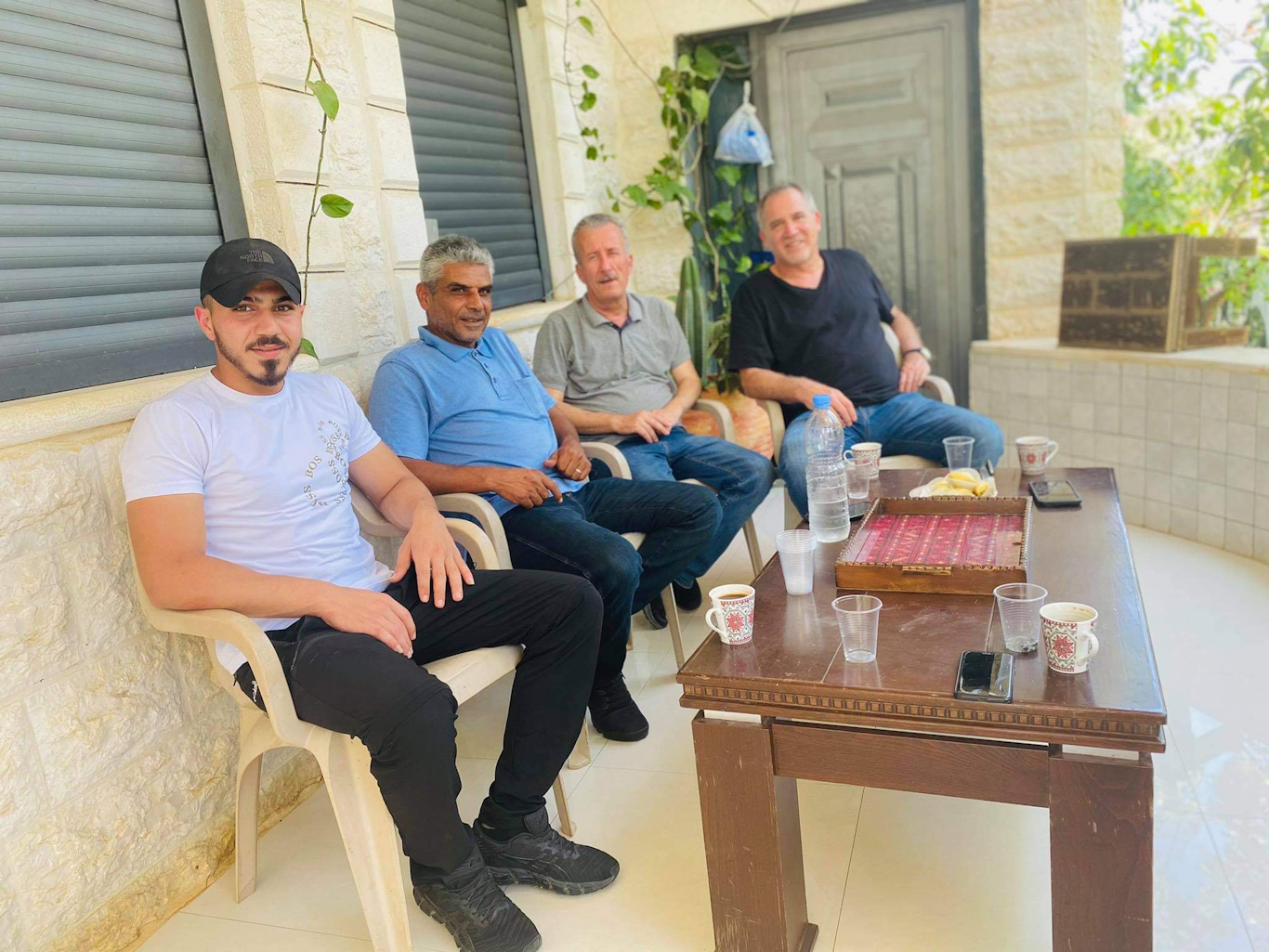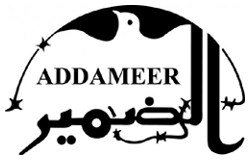One has to wonder how the Israelis who frequent the restaurants and bars around the Moskubiya would feel if they could see the sights and hear the screams of those being held there.
BIL’IN, PALESTINE — When Abdul-Khaliq Burnat was a little boy, I would see him stand on the roof of his house and look over at the soldiers assembling on the hill across the road. His father Iyad Burnat and I would stand there too, watching the army prepare for the assault on the village. Abdul-Khaliq wanted to join the weekly protests that were going on at the time, but his father did not allow him to join. Even though these were intended to be peaceful protests, once the army came in there was nothing peaceful anymore and people would get hurt. “Chlab” he would say, as though to himself as he looked at the soldiers, meaning “dogs” in his Palestinian village accent.
I saw Abdul-Khaliq the other day in his village of Bil’in, a village that made a name for itself as one of the main centers of unarmed, peaceful resistance in Palestine. But even though the village was dedicated to peaceful resistance, the Israeli forces killed, injured and arrested countless of its people.
Today Abdul-Khaliq is a good looking young man of 22. He is well built, dressed in a tight, designer t-shirt and black jeans with a baseball hat and shoes to match, just as you would expect from a young man his age anywhere. I visited Bil’in, along with Bassem Tamimi from Nabi Saleh, the other day to see him and his father. The two villages of Nabi Saleh and Bil’in are only a 30-minute drive from each other and the road from one to the other is filled with reasons why Bassem, Iyad, and now Abdul-Khaliq, along with so many other Palestinians, are dedicated to resistance: new Israeli towns constantly being built on Palestinian land, taking more and more land from their rightful owners and polluting the Palestinian landscape.
When Bassem and I arrived, Iyad and Abdul-Khaliq came out to greet us. We hugged and kissed like old friends. Iyad and Bassem are veterans of the resistance and had both experienced the horrors of the Israeli interrogation and prison system. Abdul-Khaliq had just returned home after more than 50 days of interrogations by the Israeli secret police at the infamous “Moskubiya” torture center. His brother Mohammad is still being held.

After we sat down, Bassem half-jokingly asked Abdul-Khaliq, “So, how’s the Moskubiya?” Abdul-Khaliq turned to him and replied with a look that said more than words could ever express. It was a look of horror that said, “I have experienced the horrors of hell!” He then asked Bassem and Iyad about their experiences. What was the size of the chair they had to sit on during interrogations? What was the size of the cots in the tiny cells?
“Interrogations went on for 20 hours each day,” he said, the look of horror returning to his eyes. “What could they possibly be asking for so many hours?” I naively asked.
“It’s not continuous questioning,” Bassem interjected. “You sit in the interrogation room and every three or four hours someone will come in and ask you a question, then leave you there.” Abdul-Khaliq then demonstrated how he would sit on a tiny chair, his hands cuffed behind his back, and from time to time doze off and then wake up from the pain.
The Moskubiya
The name Moskubiya is derived from the Russian city of Moscow. It refers to an area in west Jerusalem known to Israelis as the Russian Compound. It is an area that was purchased in the nineteenth century by the Czar of Russia to serve Russians who came to the Holy Land. There is a large Russian cathedral and other facilities and it is also home to the district courthouse, the police station and jail. The Shabak, the Israeli secret police, uses the facilities, which have underground chambers, as a torture center in which Palestinians are held and “interrogated.” There is a particular room at the Moskubiya known as Cell Number Four, from which people come out on all fours.
The Moskubiya sits in what became the entertainment area of west Jerusalem. It is surrounded by bars, restaurants, shops and clubs that people frequent all the time. It is a fun, happy place right next to an interrogation and torture center. One has to wonder how the Israelis who frequent the restaurants and bars in the area would feel if they could see the sights and hear the screams of those being held there.
Torture
The Israeli Committee Against Torture provides information and is engaged in challenging the Israeli authorities regarding torture. The guidelines for torture in Israel stem from a 1999 decision by the Israeli high court stating that torture is not legal; however, under certain circumstances, if it is deemed necessary for the sake of security, the Shabak will be allowed to avail itself of the means of “physical pressure.” The ruling is discussed in a piece written by Professor Yuval Shany for The Israel Democracy Institute, which explains:
In the 1999 case, the state took the view that the necessity defense may grant the Israel Security Agency (ISA) legal authority to exercise “moderate physical pressure.” The court rejected that position and ruled that four methods of interrogation used by the ISA — violent shaking, Shabach’s position (painful shackling to a low chair), prolonged “frog crouching” on the toes, and sleep deprivation (in a manner exceeding the actual interrogation needs) — were all unlawful.
Still, the court opined that a necessity defense (i.e., reasonable emergency measures needed to avert greater harm) might remain available to ISA interrogators in certain circumstances, and that the attorney general was authorized to instruct himself regarding the circumstances in which the state prosecutor should not prosecute an ISA interrogator.
Ask any Palestinian who was ever held by Israel and you will hear stories of torture. Sleep deprivation is a main staple. Lack of access to sunlight for as long as the “interrogation” continues and being tied in a pose that is extremely painful for long hours are also part of the daily routine. Excessive exposure to noise and light and a great deal of psychological torture, like the threatening of family members and threats regarding the honor and reputation of female members of a detainee’s family, are also common.
There is no question that Abdul-Khaliq Burnat will suffer PTSD in the aftermath of the trauma that was caused to him by Israel. “People come out completely crazy,” he said to me, with that same look in his eyes. This latest trauma is of course on top of the larger trauma of occupation, oppression and having his house invaded and sacked by Israeli forces.
As we sat talking, Abdul-Khaliq’s younger brother, Muhiaddin, who is in first grade at school, was sitting and listening. All I could think of was: Will we act to defend him from the Israeli brutality, or will he too become a victim of torture?




